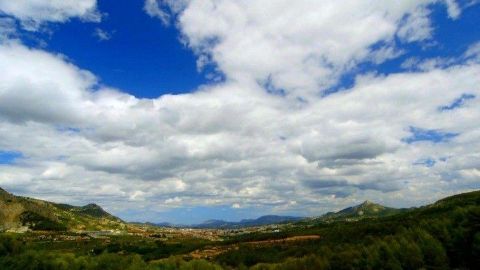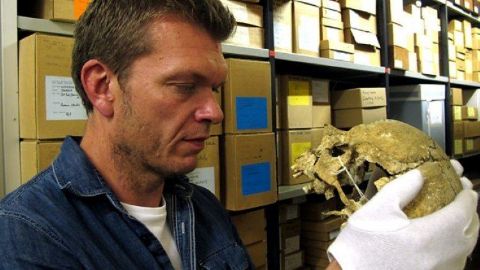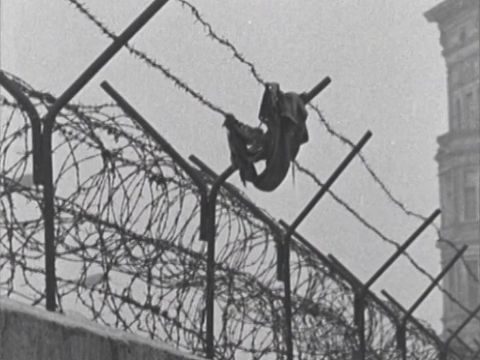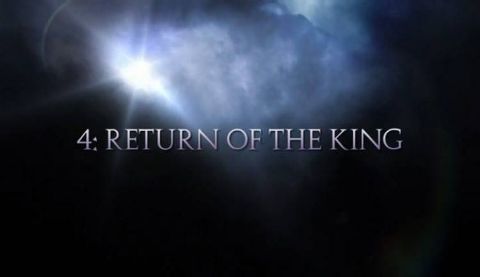You might also like
On the 19 November 1945, the International Military Tribunal was opened in the Palace of Justice in Nuremberg, Germany. The city, which had seen the rise of the Nazi Party was, in the eyes of the allies, the perfect location to host its demise. The first of the Nuremberg trials was to be the biggest murder trial in human history, with 21 Nazi leaders appearing before the court charged with the deaths of millions of innocent people during the Holocaust of WWII. These were no ordinary criminals; they represented the very foundation of Nazi ideology that had instigated the most ferocious genocide the world had ever seen. With judges and prosecutors from the US, the UK, the USSR and France, the trials were the allies' collective condemnation of Nazi Germany and the atrocities committed in pursuit of their ideology. The decisions made at Nuremberg had implications not only for the accused, but for the very foundation of modern international criminal law. Now, 75 years on, audiences are provided with an immersive look at the event that has become synonymous with the birth of contemporary human rights in the 2020 documentary, The World’s Biggest Murder Trial: Nuremberg. This feature-length documentary provides a detailed account of the events and implications of the trials, featuring more than 1000 archive clips, including recently digitised film footage from the courtroom itself. Whilst 90 minutes seems incredibly brief considering the enormity of the trials, the documentary's constant and unwavering focus on the courtroom, and the horrors it uncovered, suggest any longer might be too harrowing to bear. It is a decision that serves to amplify the inhumanity of the accusations, the apparent indifference of the accused, and the desperate desire for justice in the aftermath of such a dehumanising period of history. The sheer enormity of the task that faced the judges and prosecutors is evident from the moment each of the accused ascends from deep beneath the palace and enters the dock. Convicting a single alleged murderer is one thing, but a murder trial with an estimated 12 million victims is a an almost incomprehensible undertaking, even in a modern context. The cinematic quality of the footage captures every moment in extraordinary detail, from the disturbing cold-bloodedness of the Third Reich leaders as they openly snigger at translation errors throughout the trial, to the accounts of survivors, who witnessed the terror of their actions first hand. With the benefit of hindsight, their crimes seem indisputable; however the documentary proves that there is no conviction without proof, and the trials themselves were not without controversy. The convictions were based on concepts barely understood, laws not yet formalised, and many believed the process served as a political judgement rather than a transformative moment in international law. Despite the criticisms surrounding them, there is no denying that the greatest legacy of the trials is the role they played in reiterating the need for an international body focused on the protection of the human person. Though the majority of Nazis never received a punishment that reflected the extent of their crime, Nuremberg will forever be remembered as the moment that much of the world heard of the atrocities of the Holocaust for the first time.
2020 • History
Simon explores Spain's golden age under Philip II through to the Spanish Civil War and dictatorship under Franco, from which Spain has emerged as a modern democratic monarchy.
S1E3 • Blood and Gold: The Making of Spain • 2015 • History
He shows how discoveries in the 18th and 19th centuries overturned ideas of when and where civilisation began, as empires competed to literally 'own' the past.
S1E2 • Archaeology: A Secret History • 2013 • History
Berlin Escapes 1961-89 The many and sometimes successful attempts to escape under the watchful eyes of the East German border guards. Set against the background of the history of the Wall. On August 13th, 1961 building commenced on die Berliner Mauer, the wall that would divide the world for nearly thirty years, as well as the city of Berlin. During that period more than five thousand people escaped to freedom, but over two hundred lost their lives. Even the phrase, Checkpoint Charlie, evokes the deception and fear that existed every day in the East and West Berlin. On a Sunday morning in 1961, shocked citizens awoke to the sounds of a barrier being built along the border separating East and West Berlin. Over the next three decades, thousands of of East Berliners risked their lives--leaping from buildings, crashing vehicles into gates, digging tunnels--in desperate attempts to breach the Berlin Wall and reach the West. In 1989, as Communist rule was collapsing throughout Europe, defiant Berliners began to tear the Wall down. Today, a few battered sections remain standing--a monument to those who died trying to escape to freedom.
17/20 • The True Action Adventures of the Twentieth Century • 1996 • History
Using extracts from individuals' diaries and some film records, this documentary series tells the story of the changes that occurred in Berlin (and Germany) during the pivotal year of 1933.
2023 • History
In Richard Miles's epic story of civilization, there have been plenty of examples of the great men of history, but none came close to the legend of Alexander of Macedon, known to us as 'the Great'. Uniting the fractious Greek city-states, he led them on a crusade against the old enemy, Persia, and in little more than a decade created an empire that stretched from Egypt in the west to Afghanistan in the east. But it was Alexander's successors, the Hellenistic Kings, who had to make sense of the legacy of this charismatic adventurer. By knuckling down to the hard graft of politics, taxation and public works, they created something far more enduring than a mere legend - they built a civilization. Richard traces Alexander's battle-scarred route through Turkey, Syria and Lebanon to Egypt and ultimately to the western Punjab, Pakistan, where he discovers fascinating traces of a city where Greek west and Buddhist east were united in an intriguing new way.
S1E4 • Ancient Worlds • 2010 • History





